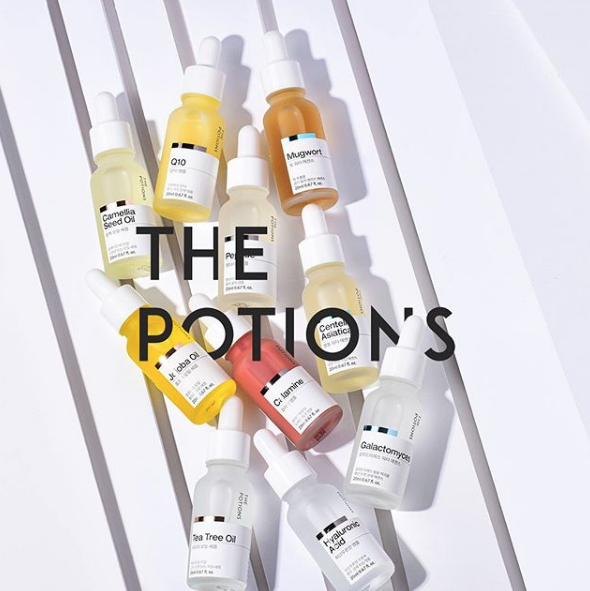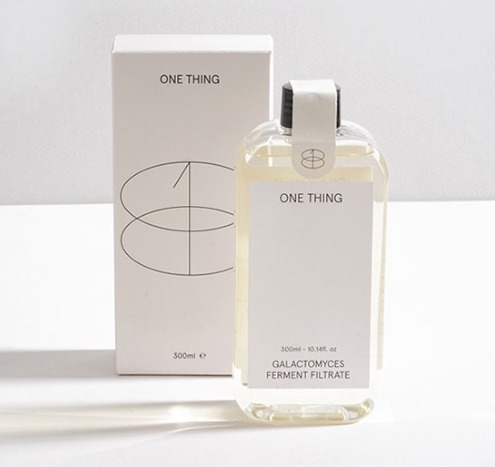5 Asian Beauty Trends for 2020 That Will Dominate Your Insta Feed
3 Comments
Ulrike Scherer
Jan 06, 2020
From capsules to cream skin, skincare is looking exciting for the new decade. Here, 5 Asian beauty trends you’ll most likely find in your next shelfie.
It’s time to ring in the new decade by looking at some of the Asian beauty trends we can expect to make waves in 2020! Some of these trends are already pretty hot on social media right now, but some are only starting to hit the mainstream and will make a big impact as the year progresses.
I am a bit of a skincare trend sleuth, so I’ve selected five trends that I feel are going to be particularly impactful in the coming year. Here are the top five Asian beauty trends that you will probably see a lot of throughout 2020!
1. Asian organic beauty
I was lucky enough to be able to visit the world’s largest organic beauty trade expo — the Vivaness in Nuremberg — at the beginning of 2019. It was awesome to see so many organic brands from Asia represented at the expo, and there was a definite buzz around these brands, especially those from Korea. Whamisa is, of course, by now a household name in Europe, and this certified organic K-beauty brand has really helped launch the Asian beauty craze in my home country, Germany.
View this post on Instagram
Apart from Whamisa, more and more organic K-beauty brands — often small and very niche in Korea — are turning into unbelievable success stories overseas: Urang, CHOBS Organic, Aromatica, Rootree, and the eco-conscious natural brand SanDaWha are all eager to expand overseas, and I suspect we will see more and more of them in 2020.
But it’s not only Korea that’s producing a number of exciting organic and cruelty-free brands. Taiwan is another strong contender when it comes to innovative and “green” skincare, with Naveen and Inna Organic the best-known T-beauty brands, both pioneers in the field. In Japan, ARTQ Organics is the main one to watch: They are an organic, plant-based aromatherapy brand that makes one of the best hand creams I’ve ever tried!
2. Hyaluronic acid capsule treatments
This trend is currently sweeping through my Instagram feed! Korean skincare brand Wellage was at the forefront of this trend: Their Real Hyaluronic Bio Capsule kits consist of a capsule made from 100% freeze-dried hyaluronic acid and a liquid serum. These two components then need to be mixed together, with the HA capsule slowly and very satisfactorily melting into the blue, green, or even golden serum, depending on what kit you choose. The idea is to provide a shot of extra hydration and care for the skin similar to a sheet mask, but without the hassle of applying any sticky fabric to the face.
View this post on Instagram
Apart from Wellage, Bellamonster has come out with their copycat “D-Day Solution Kits,” which feature serums containing galactomyces or carrot seed oil. And Dermatory just released the Hyal Shot duo, where a low molecular hyaluronic acid serum is combined with a freeze-dried hyaluronic acid cube for a double shot of hydration.
View this post on Instagram
I am suspecting more capsule treatments will be launched in the coming months. As someone who has tried the Wellage capsules, I must say I am not fully sold on the trend yet, since my skin was kind of “meh” about them overall. But there sure is something satisfying about mixing up a super fresh skincare concoction right before use.
3. Probiotic skincare
I must admit that this particular trend caught me by surprise, since I had seen a number of Asian brands “making probiotic skincare happen” for a few years now already. Fermented skincare has been a staple in Asian skincare for a while of course, but specifically labeling it as “probiotic” was more of a French pharmacy thing, with French derma giant La Roche-Posay and their Toleriane range the best-known example.
Probiotic skincare basically uses the process of fermentation to break down the size of ingredient molecules, making them more easily absorbable. Probiotic bacteria such as lactobacillus or bifidabacterium are those good bacteria your mom always talked about when she was trying to make you eat up your yogurt or drink your Yakult (ah, the taste of my German childhood). When digested, they help promote your gut health. Applied topically, they can support the healthy balance of your skin’s microbiome — the sum of all microorganisms living on your skin — and thus keep the bad bacteria in check. Furthermore, probiotics help strengthen your skin barrier by stabilizing the pH value and improving hydration levels. Pretty neat, huh?
View this post on Instagram
From Amorepacific’s new probiotic skincare brand SOON+ to the ever more popular head-to-toe product range from Illiyoon, probiotic skincare seems to be ubiquitous these days. Another indication of this growing trend is the popularity of Innisfree’s Derma Formula Green Tea Probiotics Cream — 30,000 jars of this moisturizer were sold in less than 12 hours after launching in Korea! No wonder, given the appealing combination of green tea extract and the probiotic lactobacillus ferment lysate.
4. Cream mists and toners
It was Laneige and its Cream Skin Refiner that started the “cream skin” craze, and since then, scores of cream mists and cream toners have made their debut. These milky, watery toner-moisturizer hybrids are perfect for sensitive, dehydrated skin types. They provide deep hydration and combat long-term moisture loss without overpowering the skin like richer cream textures often do.
View this post on Instagram
By now, Laneige has launched a whole skincare line around the cream skin concept, the Cream Skin Milk Oil Cleanser being the latest newbie. But it is mostly the Cream Skin Refiner Mist which has inspired the most copycat products. Dr. Jart+ has just brought out the Ceramidin Cream Mist, enriched with skin-repairing ceramides, and the Botanic Heal Derma Intensive Panthenol Cream Mist has been topping sales charts at Korean drugstore chain Olive Young in the facial mist category for weeks now. Carenology, The Saem, Aestura and Tony Moly all have launched or are about to launch their own cream mist versions, so there seems to be no end in sight to this trend.
5. The Ordinary goes K-beauty
There is no doubt that Deciem changed the beauty industry forever when they birthed The Ordinary. The high dosage formulations with a focus on one potent ingredient turned many of us into science-savvy skincare experts and avid label-readers.

From what I know, Deciem hasn’t been hugely popular in Asia compared to here in the West, but lately I’ve noticed the one-ingredient product trend slowly creep into my social media feed. Olive Young launched The Potions recently, and the brand’s small glass dropper bottles are clearly meant to evoke connections to The Ordinary, as do the simplistic formulations that focus on one star ingredient such as peptides or hyaluronic acid. One Thing is another solo ingredient brand from Korea, though more consciously sleek and higher end than the budget-friendly The Potions.

One-ingredient essences, especially those with mugwort/artemisia extract, are also still a big trend in Korea. Of course, the “100% mugwort extract” promise should be seen with a healthy dose of skepticism, given the fact that a medium is needed to extract any kind of raw plant ingredient, usually water, alcohol, or oil. Nevertheless, I’ve heard many a trusty blogger sing the praises of the Missha Time Revolution Artemisia Treatment Essence and the I’m From Mugwort Essence.
Asian beauty in 2020: Less is more and glass skin is too much
As for the glass skin trend that was so hot back in 2018 and still highly relevant in 2019 … well, it seems that glass-like, smooth, hyper-perfection is beginning to lose its appeal for many of us.
In 2020, a more achievable look will become the new ideal: Skincare influencers have started to consciously show their unfiltered faces on Instagram — acne, pores, and all — to encourage realistic beauty standards and move away from face-tuned flawlessness. In Korea, more and more women are turning towards simplified “skip-care” routines, a trend you can also see reflected in the increasingly more minimalist packaging and reduced ingredient lists of many Asian beauty brands.
View this post on Instagram
I also expect global eco-awareness and the zero-waste movement to become more impactful in the Asian beauty world this year. Japan has long been a forerunner in this regard, with their multi-package sheet masks and refillable lotions, but I’ve noticed Korea making some strides as well, with many brands moving towards less packaging and biodegradable sheet mask materials.
What Asian beauty trends have you been seeing lately? Anything you would add to this list for 2020? Share your predictions in the comments below!
Author:
Ulrike Scherer
Ulrike has been fascinated by skincare since her teenage years. Her love for both writing and beauty led her to start her blog, “Sugarpeaches…loves”, where she writes in both German and English about Asian, indie and niche brands, as well as European pharmacy gems and organic skincare. She also started her own podcast, The K-Beauty Podcast, which apparently makes a lot of people fall asleep — a fact that she sees as a compliment and totally not a worrying commentary on her content or voice qualities. You can also find her on Instagram @sugarpeachesloves!
Comments
Loading...